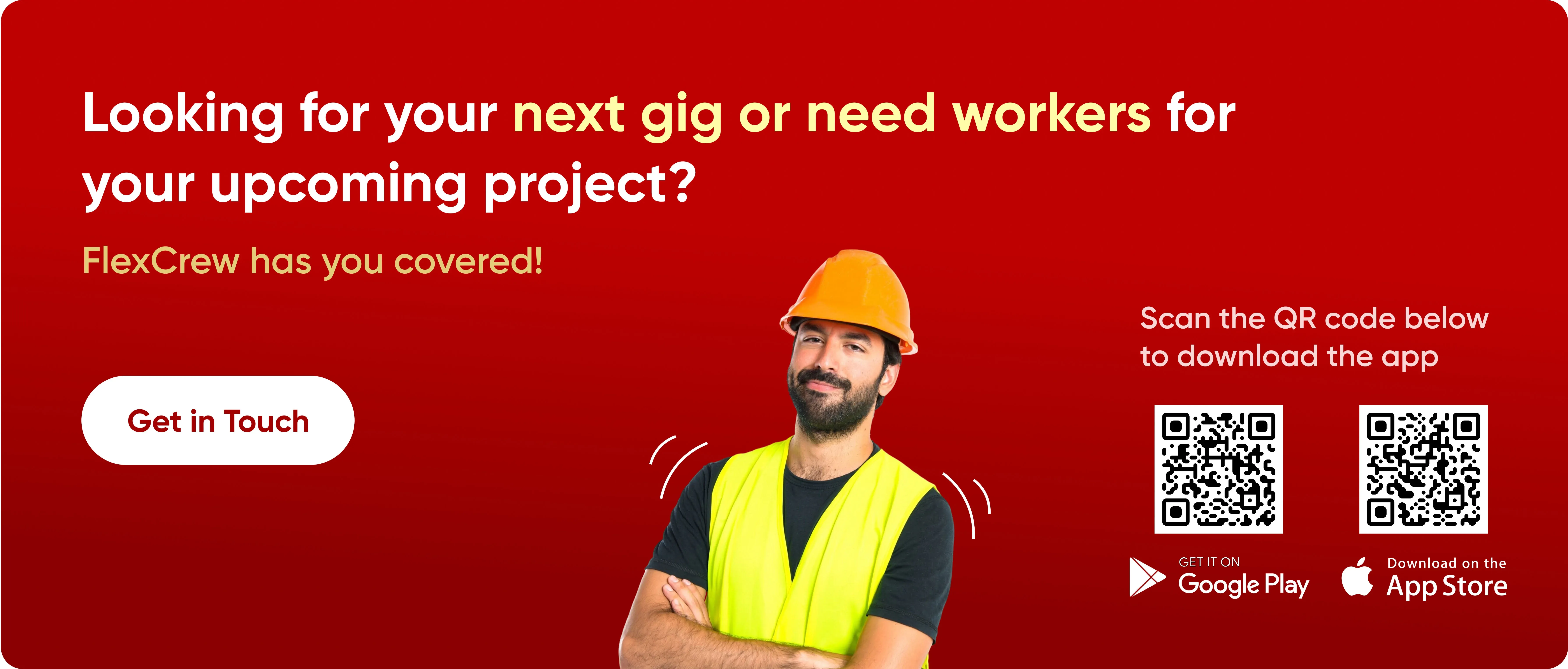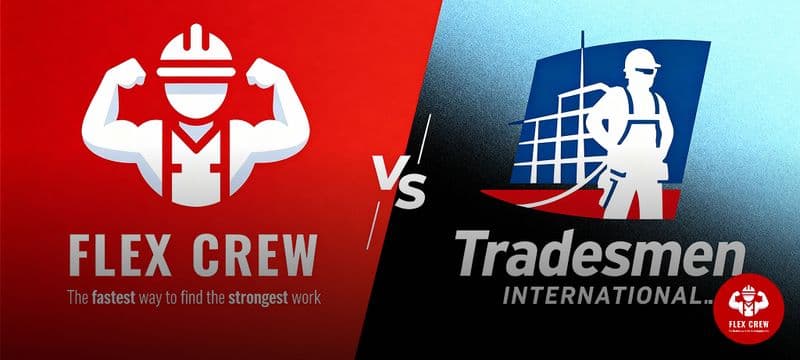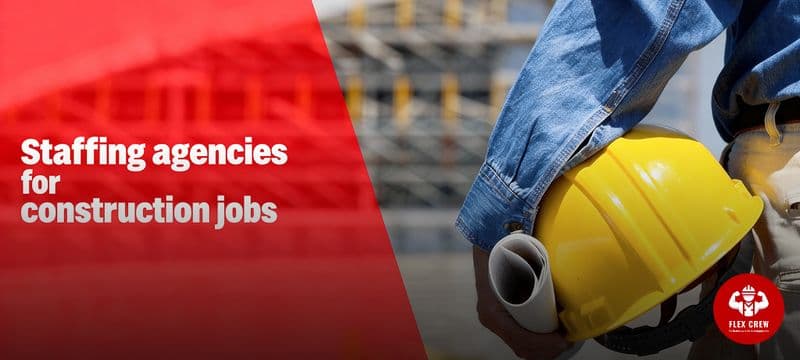Construction companies are facing their toughest hiring challenge in decades. With over 500,000 open positions nationwide and projects getting delayed due to workforce shortages, contractors need real solutions fast. This staffing crisis isn't just about finding bodies – it's about securing skilled workers who can deliver quality results on time and within budget. The companies that solve their workforce challenges first will capture market share while competitors struggle with delays and cost overruns. Smart contractors are already shifting from traditional hiring to flexible workforce strategies that deliver results.
The Numbers Don't Lie: Construction's Staffing Emergency
The construction industry needs to hire approximately 501,000 additional workers on top of normal hiring rates just to meet 2024 demand. That's like trying to staff an entire city's worth of construction workers in one year.
Here's what makes this shortage particularly brutal:
- 88% of construction firms struggle to find qualified workers
- 41% of current workers will retire by 2031
- Only 13% of new hires are under 25 years old
- 77% of projects finish at least 40% late due to staffing issues
The ripple effects hit everywhere. Projects get delayed, costs spiral upward, and existing workers burn out from excessive overtime. Companies are turning down profitable work simply because they can't find people to do it.

Why Traditional Hiring Isn't Working Anymore
The Retirement Wave No One Saw Coming
Baby boomers built America's infrastructure, and now they're leaving en masse. With nearly half of construction workers over 45, the industry loses decades of experience every month. Unlike other sectors where knowledge transfers easily, construction expertise comes from years on actual job sites.
Young Workers Aren't Buying What Construction Is Selling
High schools push college over trades, creating a cultural bias against construction careers. Students see construction as temporary work, not a professional pathway. Meanwhile, other industries offer remote flexibility and tech-forward environments that appeal to younger generations.
Location Becomes a Liability
Construction happens where buildings need to go – often in remote areas without public transportation. Over 25% of potential employees cite transportation difficulties as their main barrier to construction work. When your job site is 50 miles from the nearest city, finding local workers becomes nearly impossible.
The Skills Gap Keeps Growing
Construction technology evolves rapidly, but training programs lag behind. Workers need expertise in everything from advanced safety protocols to digital project management tools. Traditional apprenticeships take 4+ years when companies need skilled workers immediately.
The Hidden Costs of Staffing Shortages
Project Delays Create Domino Effects
When one trade falls behind, everyone else gets pushed back. A two-week delay for framers means electricians, plumbers, and roofers all start late. These delays compound quickly, turning minor setbacks into major budget overruns.
Impact Area | Average Cost Increase |
|---|---|
Labor overtime | 15-25% |
Equipment rental extensions | 10-20% |
Material storage/handling | 5-15% |
Customer penalties | Variable |
Quality Suffers Under Pressure
Rushed hiring leads to inexperienced workers making costly mistakes. Insurance claims spike when undertrained employees work on complex projects. The pressure to fill positions quickly often overrides proper vetting processes.
Burnout Drives More People Away
Existing workers pull double shifts to compensate for vacant positions. This creates a vicious cycle where overworked employees leave for less demanding industries, worsening the shortage.
Smart Solutions That Actually Work
Flexible Staffing Models Beat Traditional Hiring
Instead of hiring permanent staff for fluctuating project needs, smart contractors use flexible workforce solutions. Companies like FlexCrewUSA.com specialize in providing skilled construction workers exactly when and where you need them.
This approach offers several advantages:
- Immediate deployment of qualified workers
- Reduced hiring and training costs
- Scalable workforce that matches project demands
- Lower liability through professional staffing partnerships
Technology Bridges the Skills Gap
Modern construction increasingly relies on digital tools that can reduce training time while improving accuracy. Building Information Modeling (BIM), drone surveys, and automated equipment help less experienced workers contribute meaningfully to complex projects.
Companies investing in user-friendly technology see faster worker onboarding and reduced error rates. When tools are intuitive, training periods shrink from months to weeks.

Targeted Recruitment Reaches Untapped Talent
Women represent only 14% of construction workers despite showing strong aptitude for the industry. Companies actively recruiting from underrepresented groups find dedicated employees who appreciate inclusive work environments.
Military veterans bring discipline, teamwork skills, and technical aptitude that translate well to construction. Targeted outreach to veteran organizations yields higher-quality candidates than general job postings.
Building Your Staffing Strategy for Success
Partner with Specialized Staffing Providers
Professional staffing companies maintain networks of pre-screened, skilled workers ready for immediate deployment. These partnerships provide:
- Background-checked workers with verified experience
- Flexible contracts that scale with project needs
- Insurance and compliance handled by the staffing provider
- Quick replacement if workers don't meet expectations
FlexCrewUSA.com exemplifies this model, connecting construction companies with qualified workers across multiple trades. Their screening process ensures you get experienced professionals, not just warm bodies.
Invest in Worker Retention
Keeping good workers costs less than constantly finding new ones. Successful retention strategies include:
- Competitive compensation packages that match or exceed local rates
- Clear advancement pathways showing career growth opportunities
- Consistent scheduling that respects work-life balance
- Safety programs that prioritize worker wellbeing
Streamline Your Onboarding Process
Lengthy paperwork and complicated procedures discourage qualified candidates. Successful companies use digital onboarding platforms that allow workers to complete requirements remotely before their first day.This is where flexcrewusa plays a crucial role.
Regional Strategies That Address Local Challenges
Urban Markets Face Different Problems
City-based projects struggle with high living costs that make construction wages less attractive. Traffic congestion extends commute times, while parking costs eat into worker take-home pay.
Solutions include:
- Transit stipends for workers using public transportation
- Partnership housing for workers from outside metro areas
- Flexible start times that avoid rush hour traffic
Rural Projects Need Creative Solutions
Remote job sites often lack local talent pools, requiring companies to bring workers from distant locations. Successful rural contractors offer:
- Temporary housing or housing allowances
- Per diem payments for meals and incidentals
- Transportation coordination between workers
Industrial Projects Demand Specialized Skills
Large-scale infrastructure and manufacturing projects require workers with specific certifications and experience. These projects benefit from partnering with specialized staffing providers who maintain relationships with highly skilled tradespeople.
Technology Solutions for Workforce Management
Digital Platforms Improve Efficiency
Modern workforce management platforms help contractors:
- Track worker certifications and training requirements
- Schedule crews across multiple project sites
- Monitor productivity and identify optimization opportunities
- Communicate instantly with distributed teams
Predictive Analytics Prevent Shortages
Advanced scheduling tools analyze historical data to predict workforce needs weeks in advance. This allows proactive recruiting rather than crisis hiring when projects start.
Mobile Apps Enhance Worker Experience
User-friendly mobile applications let workers:
- View schedules and receive updates in real-time
- Submit timesheets and expense reports digitally
- Access training materials and safety protocols
- Communicate directly with supervisors and project managers
The Future of Construction Staffing
Demographic Changes Require New Approaches
As the workforce becomes more diverse, construction companies must adapt their recruitment and management practices. This includes:
- Multilingual safety training and documentation
- Flexible scheduling for workers with family obligations
- Cultural competency in management approaches
Remote Capabilities Expand Talent Pools
While construction work happens on-site, many supporting roles can be performed remotely:
- Project managers can oversee multiple sites virtually
- Estimators can bid projects from anywhere
- Safety coordinators can conduct virtual inspections
- Administrative staff can handle paperwork remotely
This flexibility allows companies to hire talent regardless of geographic location.
Automation Changes Skill Requirements
As robots and AI handle more routine tasks, human workers focus on complex problem-solving and quality control. This shift requires different training approaches but can make construction careers more appealing to tech-savvy workers.
Taking Action: Your Next Steps
Construction's staffing crisis won't solve itself, but companies taking proactive steps gain competitive advantages. Here's how to start:
- Audit your current workforce needs and identify critical gaps
- Research flexible staffing solutions that match your project requirements
- Implement digital tools that improve worker efficiency and satisfaction
- Develop retention strategies that keep your best employees engaged
- Partner with specialists who understand construction staffing challenges
FlexCrewUSA.com offers comprehensive workforce solutions designed specifically for construction companies. Their platform connects you with pre-screened, qualified workers while handling insurance, compliance, and administrative details.
Don't let staffing shortages derail your next project. The companies that adapt quickest to these workforce challenges will capture the opportunities their competitors miss.
Frequently Asked Questions
Q: How quickly can flexible staffing providers deploy workers to active job sites?
A: Professional staffing companies like FlexCrewUSA typically deploy qualified workers within 24-48 hours of request. They maintain pools of available workers across different trades and geographic regions.
Q: What's the average cost difference between hiring permanent staff versus using flexible staffing?
A: While hourly rates for staffed workers may appear higher, total costs often favor flexible staffing when you factor in benefits, training, unemployment insurance, and periods when permanent staff aren't fully utilized.
Q: How do you ensure quality when using temporary or contract workers?
A: Reputable staffing providers pre-screen workers, verify certifications, and maintain performance records. Many offer guarantees and will replace workers who don't meet expectations at no additional charge.
Q: Can flexible staffing solutions handle specialized trades like welding or electrical work?
A: Yes, specialized staffing companies maintain networks of certified tradespeople across all construction disciplines. They verify licenses, certifications, and experience levels before placement.
Q: What happens if a staffed worker gets injured on the job site?
A: Professional staffing companies carry workers' compensation insurance and handle all injury-related paperwork and claims. This reduces liability for the construction company while ensuring proper worker protection.
Q: How far in advance should we request additional workers for upcoming projects?
A: While emergency placements can happen within days, providing 1-2 weeks notice allows staffing providers to match the best-qualified workers to your specific project requirements.



